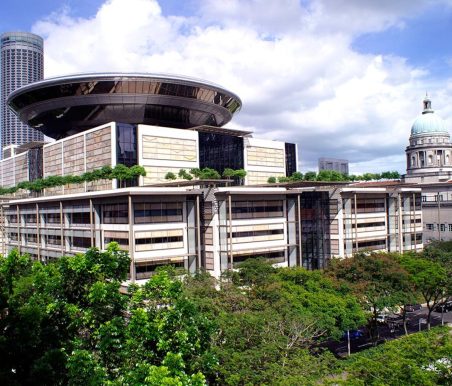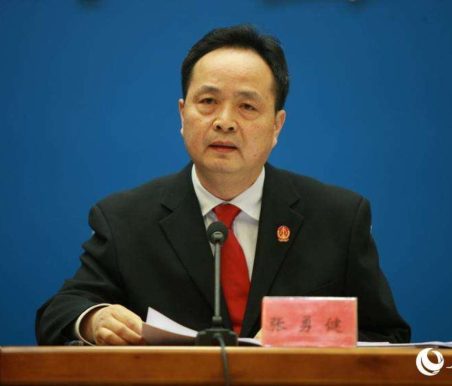ABLI has been aware of the following order since last year. However, as we only have information from Chinese sources, we debated whether it would be a good idea to write about the order. After careful consideration and further research, we decided to publish information about this order in English.
Please read our disclaimer below.
Background
Sainty Marine Corporation Limited (江苏舜天船舶发展有限公司), a well-known shipping company based in Nanjing, China (“Chinese Entity”), was ruled to enter into bankruptcy liquidation proceedings in China, and Chinese firm, JC Master Law Offices, has been appointed to act as its administrator.
Upon investigation, the administrator discovered that the Chinese Entity held 70% of the equity of Sainty Marine (Singapore) Pte Ltd (“Singapore Entity”). The administrator therefore sent written correspondences to the Singapore Entity to, among others, ask for financial materials, but to no avail.
To properly deal with the 70% equity and given the fact that the administrator needed to exercise certain rights on behalf of the Chinese Entity, the administrator applied to the Singapore High Court requesting the Court to recognize the Chinese bankruptcy liquidation proceedings and the capacity of the administrator to act on behalf of the Chinese Entity in Singapore.
The Order
On 10 June 2020, an order was issued by the Singapore High Court:
“1. Insolvency proceeding (2016) Su 01 Po No. 8 in respect of Jiangsu Sainty Marine Development Corporation Ltd (Unified Social Credit Identifier 91320000691302541N (1/1) and domiciled in Block A, No. 21 Ruanjiandadao Station, Yuhuatai District, Nanjing) (“the Company”) commenced by the Nanjing Intermediate People’s Court of Jiangsu Province in the People’s Republic of China (“Nanjing Court”) by its ruling dated 29 December 2016 be and is hereby recognised as a foreign main proceeding in respect of the Company pursuant to and within the meaning of Article 17 of the Tenth Schedule to the Companies Act (Cap 50, 2006 Ed) read with s 345B of the said Act; and
2. The appointment in the foreign main proceeding of JC Master Law Offices as the administrator of the Company be and is hereby recognised.”
Disclaimer: We are grateful to Lauren Tang and YiLei Tan, respectively Partner and Associate of Virtus Law LLP, who acted for the applicant JC Master Law Offices for providing us with contents of the Order. ABLI has not independently sighted the Order but has, upon research, become aware of the originating summons number. Those who wish to learn more about this Order are advised to file a request for inspection under eLitigation. Such a request is subject to the payment of relevant fees and approval by the Registrar. Other information about the case is translated from a report by the Nanjing Intermediate People’s Court in Chinese.
Commentary
According to official Chinese media, this order represents the first time that a Singapore court has given such recognition in relation to Chinese bankruptcy proceedings. With this recognition, the administrator enjoys relevant rights under the then Companies Act and now the Insolvency, Restructuring and Dissolution Act. Such rights include, among others, requesting the court to stay the commencement or continuation of individual actions or individual proceedings concerning the debtor’s property, rights, obligations or liabilities, and requesting the court to stay execution against the debtor’s property.
On February 22, 2021, the Jiangsu High People’s Court announced the selection of this case as among 14 “typical bankruptcy cases” of Jiangsu for the year 2020. The case has also been mentioned by the Nanjing Bankruptcy Court (which precisely speaking is a division within the Nanjing Intermediate People’s Court) as a “template” for judicial cooperation in cross-border insolvency between the courts of China and Singapore. The Chinese company is headquartered in Nanjing, the capital of Jiangsu Province.
For more information on China’s bankruptcy procedures, read our Corporate Restructuring and Insolvency in Asia. Our webinar on Playbook on China’s Corporate Restructuring Tools and Their Cross-border Implications is also open for registration, and will take place on October 21.
Whilst every effort has been made to ensure that the information contained in this update is correct, the Asian Business Law Institute disclaims all liability and responsibility for any error or omission in this update, and in respect of anything, or the consequences of anything, done or omitted to be done by any person in reliance, whether wholly or partially, upon the whole or any part of the contents of this update.







